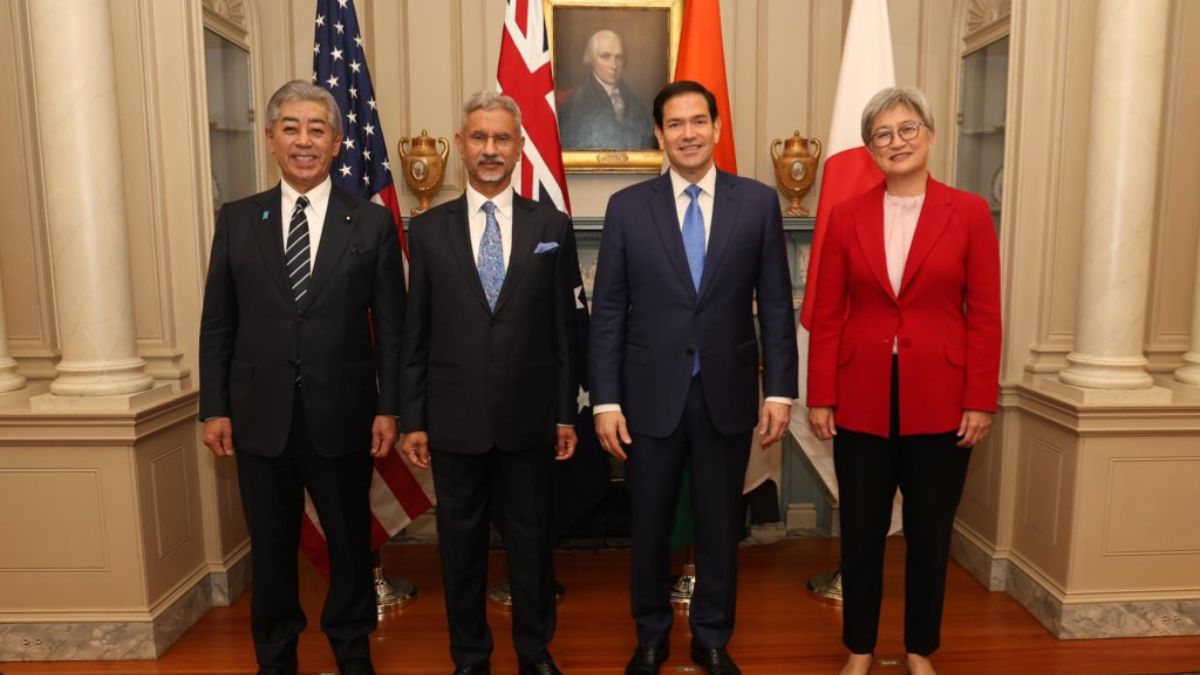In a significant diplomatic development following Operation Sindoor, Quad foreign ministers have voiced strong support for India in the wake of the April 22 Pahalgam terror attack. External Affairs Minister S Jaishankar used the opportunity to underline India’s resolve to counter cross-border terrorism and dismantle the infrastructure of fear.
What was the key outcome of the Quad foreign ministers’ meeting in Washington, D.C.?
The foreign ministers of the Quad countries—India, the United States, Australia, and Japan—issued a strong condemnation of the Pahalgam terrorist attack that killed 26 civilians. In a joint statement, they called for the “perpetrators, organisers, and financiers of this reprehensible act to be brought to justice without delay.” They also urged all UN member states to cooperate under international law to hold the guilty accountable.
Who attended the meeting and what was its broader context?
The meeting was attended by External Affairs Minister S Jaishankar, US Secretary of State Marco Rubio, Australian Foreign Minister Penny Wong, and Japanese Foreign Minister Takeshi Iwaya. This was the second Quad ministerial meet of the year and the first since India launched Operation Sindoor, a cross-border counter-terror operation targeting Lashkar-e-Taiba-linked infrastructure in Pakistan and Pakistan-occupied Kashmir.
Was there any mention of other international conflicts?
Interestingly, the joint statement steered clear of references to the Russia-Ukraine war or the crisis in the Middle East. However, New Delhi viewed the Quad’s specific mention of the Pahalgam attack as a strong diplomatic message and a reaffirmation of support to India’s counter-terrorism stance.
What did Jaishankar say about the Pahalgam attack?
Calling it an “act of economic warfare,” Jaishankar said the attack was intended to derail Kashmir’s tourism-driven economy and provoke communal unrest by targeting civilians based on their faith. “We decided that we cannot let terrorists function with impunity,” he said, adding that India would no longer tolerate a situation where the attackers find shelter across the border and assume immunity from retribution.
What message did Jaishankar convey about India’s response to terrorism?
Jaishankar stated that India has made it clear to both its partners and adversaries that it will exercise its right to defend its people. “There will be no impunity for terrorists,” he said. “We will not allow nuclear blackmail to prevent us from responding. We are no longer going to treat terrorists as proxies while sparing the governments that harbour and support them.”
What triggered Operation Sindoor?
India launched Operation Sindoor in retaliation for the Pahalgam attack, which was claimed by The Resistance Front (TRF), a proxy for Pakistan-based Lashkar-e-Taiba. The operation targeted terror training camps and logistics hubs across the Line of Control, sending a strong message of zero tolerance towards state-backed terrorism.
As tensions remain high, India’s diplomatic signalling at the Quad meet reaffirms its commitment to act decisively against cross-border terror while rallying international partners around a shared security agenda in the Indo-Pacific.
What was discussed during Rajnath Singh’s phone call with U.S. Secretary of Defense Pete Hegseth?
Defence Minister Rajnath Singh and U.S. Secretary of Defense Pete Hegseth held a telephonic conversation on July 1, 2025, to review the status of India-U.S. defence cooperation. The two leaders discussed a wide range of issues including joint military training, industrial collaboration, logistics sharing, and regional security. Singh conveyed his “deep appreciation for the unwavering support extended by the U.S. to India in its fight against terrorism” and commended Hegseth’s role in strengthening bilateral ties. He also expressed his intent to meet Secretary Hegseth soon, following an invitation for an in-person visit to the United States.
